
by Bernd Debusmann | 2 Feb 2021 | Americas, Donald Trump, Future of Democracy, Government, Joe Biden, Politics
Donald Trump’s “Big Lie” — that Joe Biden stole the U.S. presidential election — has stoked a domestic revolt and tarnished America’s global stature. An image of then President Donald Trump appears on video screens before his speech to...

by Bernd Debusmann Jr | 28 Jan 2021 | Conflict, Donald Trump, Human Rights, Joe Biden, Middle East
Donald Trump knit close ties with Israel and Saudi Arabia. The new U.S. administration under Joe Biden is reassessing relations with the Middle East. Then U.S. Vice President Joe Biden sits with Israel’s Prime Minister Benjamin Netanyahu before a dinner in...
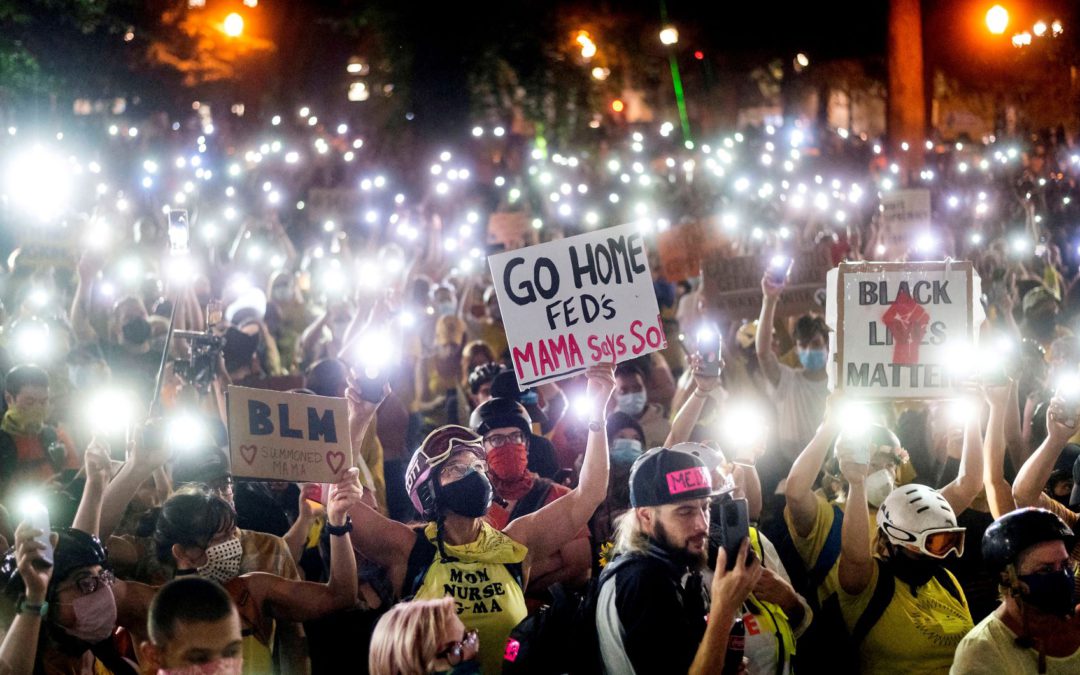
by Christina MacCorkle | 26 Jan 2021 | Americas, Asia, Contest winners, Contests, Donald Trump, Educators' Catalog, Future of Democracy, Human Rights, Joe Biden, Politics, Student Posts, Thacher School, Youth Voices
A pro-democracy movement in South Korea offers lessons to two U.S. social movements — against police brutality and for a defeated ex-president. Black Lives Matter protesters hold their phones aloft in Portland, Oregon, 20 July 2020. (AP Photo/Noah Berger) This story...
Sociologists are the first to admit they are apt to speak their own tongue, so reporting on sociological research can tie even experienced reporters in knots. And high school students are not always interested in events of half a century ago. So it’s a rare pleasure when a student connects a pro-democracy movement in South Korea during the 1960s and ‘70s with social movements in the United States today, and renders sociology understandable to the untrained ear in the process. Christina MacCorkle of The Thacher School takes academic research about a country far from her school’s California campus and connects it to current events in the U.S., using simple language to convey complex academic arguments. Many students are trained to write academic essays, but MacCorkle enlightens those of us outside of academia.
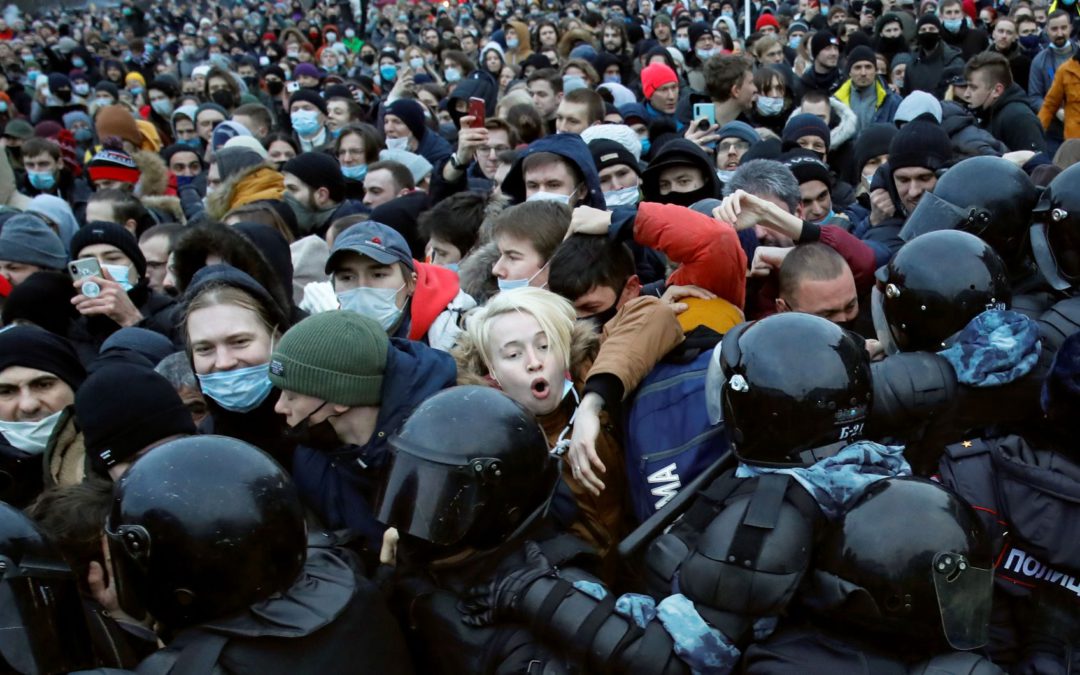
by Helen Womack | 25 Jan 2021 | Europe, Future of Democracy, Human Rights, Politics
Vladimir Putin has ruled Russia with an iron fist for two decades. Now, dissident Alexei Navalny is testing the Kremlin leader’s enduring grip on power. Demonstrators clash with police during a protest against the jailing of opposition leader Alexei Navalny in...
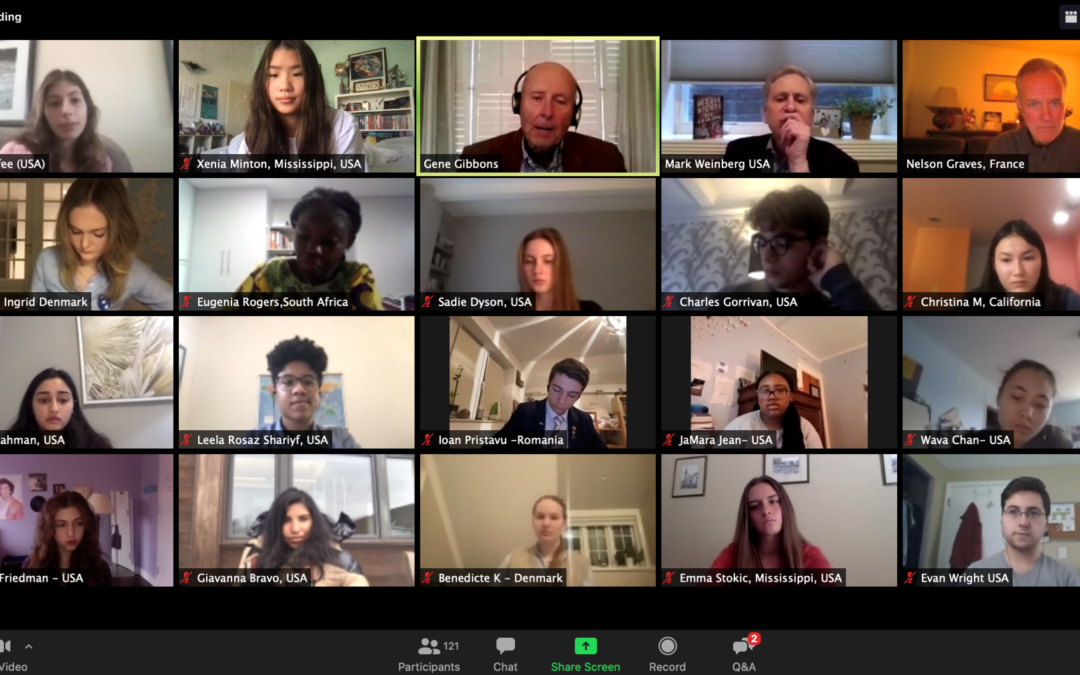
by Nelson Graves | 20 Jan 2021 | Americas, Donald Trump, Future of Democracy, Human Rights, Joe Biden, News Decoder Updates, Politics
In a shift from the Trump administration, Joe Biden and Kamala Harris will not tolerate white supremacy, two experts tell a News Decoder webinar. Joe Biden and Kamala Harris will strive to restore respect for racial and ethnic diversity in the United States and not...

by Nelson Graves | 11 Jan 2021 | Americas, Eyewitness, Government, Joe Biden, News Decoder Updates
News Decoder correspondent Gene Gibbons covered six U.S. presidents. His White House memoir offers portraits of presidents, a queen and a pope. He covered six U.S. presidents as a White House correspondent, and now he has written a memoir that offers an inside look at...

by Barry Moody | 7 Jan 2021 | Europe, Government, Nationalism
Despite a Brexit deal with the EU, Boris Johnson’s popularity as UK leader has plunged as COVID-19 wreaks havoc, with his foibles on display. British Prime Minister Boris Johnson departs 10 Downing Street for parliament in London, 30 December 2020. (EPA-EFE/ANDY...
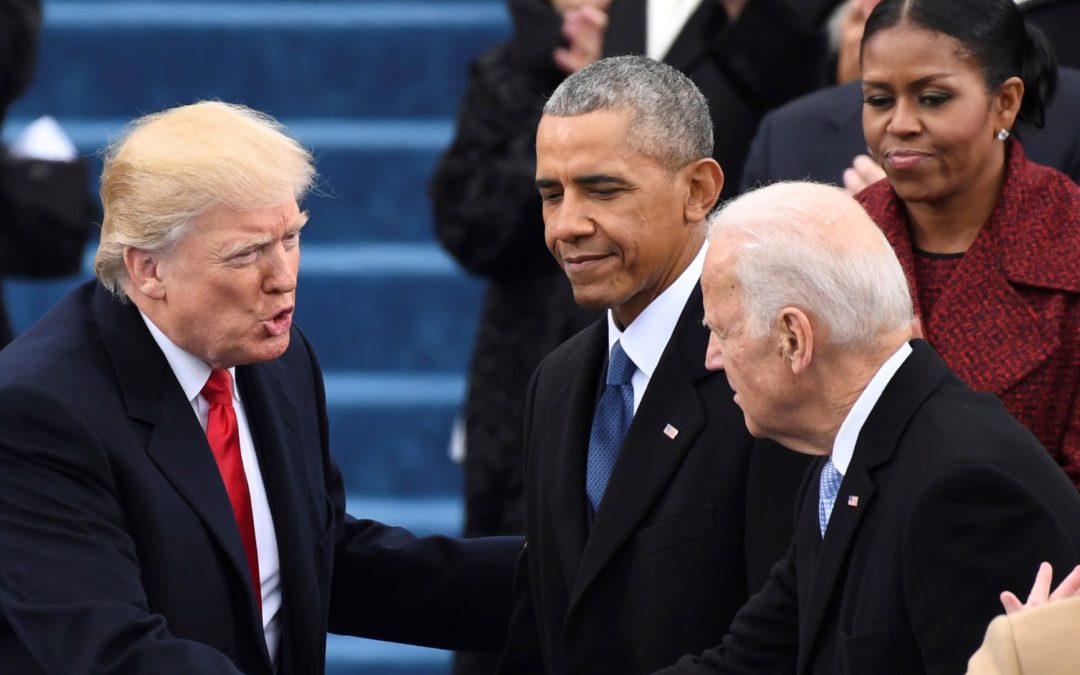
by Deborah Charles | 5 Jan 2021 | Americas, Donald Trump, Eyewitness, Future of Democracy, Government, Joe Biden
Donald Trump’s efforts to overturn the U.S. presidential election and COVID-19 ensure an uneasy transfer of power to President-elect Joe Biden. U.S. President-elect Donald J. Trump shakes hands with Vice President Joe Biden as he arrives for his inauguration on...

by Bryson Hull | 16 Dec 2020 | Conflict, Government, Human Rights, Media Literacy, Personal Reflections
Journalists and NGOs often rely on each other to inform the world. But beware vested interests. It’s best to follow the money trail to see the full picture. A sign that counter-protesters lit on fire burns after supporters of U.S. President Donald Trump held...
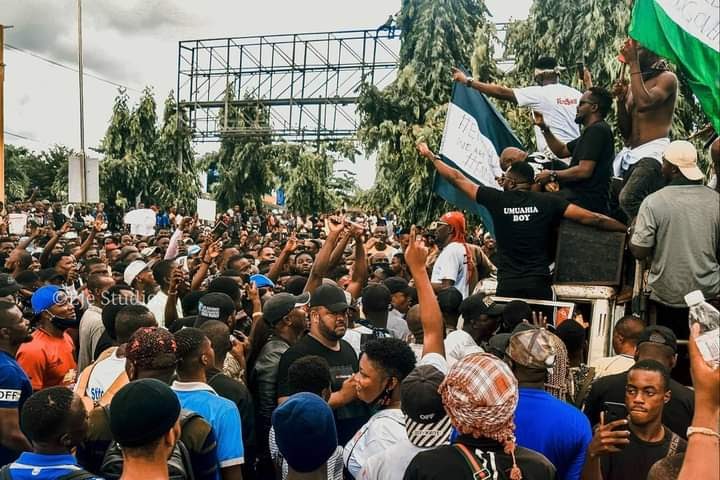
by Joy Chinaza | 9 Dec 2020 | Africa, African Leadership Academy, Contest winners, Educators' Catalog, Eyewitness, Future of Democracy, Human Rights, Personal Reflections, Politics, Student Posts, Youth Voices
I joined protests against police brutality in my home country of Nigeria and saw them almost become a war, then a rude awakening for youth. Protesters in Umuahia, Nigeria, October 2020 (All photos courtesy of Eje Studios) This story was a runner-up in News...
Joy Chinaza takes us into the streets of Nigeria to join young people protesting against police brutality. Like youth elsewhere this year, she is driven by anger over rights abuses perpetrated by police charged with protecting civilians but who instead turn weapons against minorities. A shared sense of injustice motivates Chinaza and millions of others around the globe, making her story a metaphor for youthful outrage. But the personal details in the tale by the African Leadership Academy student, including the beating her own brother suffers, add poignancy that sets her account apart. Make sure students note how the first-person pronoun draws them into the story. And how her outrage — so common among youth — is tinged with ambiguity at the end.










